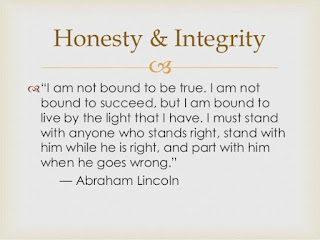Becoming Victims of a Single Fictional Narrative (part 1)
I love my birthplace—Addis Ababa. I love my village, my town, and my country. How could I not? I believe the same holds true for every Ethiopian. We are deeply connected to our people, our languages, our landscapes, our food, our culture, and everything we grew up with. It is part of who we are.
Ethiopia, like many African countries, is vast and diverse—stretching across the south, north, west, and east. To give you a sense of scale: the eastern part of Ethiopia alone is comparable in size to the entire country of France. As a nation, we are large, rich in heritage, and culturally and linguistically diverse.
Yet, for generations, Ethiopians—like many Africans—have been fed a single, fictional narrative. We were told we are “poor,” “uncivilized,” “backward,” and even “liquid” — a term some Western thinkers used to label developing nations, in contrast to their supposedly “solid” societies.
But the events of recent years, the COVID-19 pandemic, have revealed the truth: no country is truly “solid.” As the late Polish sociologist Zygmunt Bauman said, we now live in “liquid times.” We all walk on moving sands. No nation or people is immune to vulnerability, no matter how powerful they appear. We are all on the same ship, facing the same storm.
Despite enduring countless hardships—wars, famine, political upheaval—Ethiopia has remained united. Our sovereignty has never been negotiated or surrendered. We have stood firm in protecting our territorial integrity, regardlepostss of the challenges.
However, in the -colonial era, new tactics replaced direct colonialism. Ethiopia, though never colonized in the traditional sense, was not spared. We became targets of cultural invasion, wrapped in the packaging of development aid, education, and foreign “assistance.” Decade after decade, western influences permeated our systems—economically, educationally, and culturally. And along with that came
another story: the continuation of a single, false narrative.
Today, new global powers are emerging. China, for instance, stands at Africa’s doorstep—an economic giant with enormous reach. While their approach may appear different, the underlying strategy is similar: influence masked as partnership, support tied to strategic interests. All this arrives under the guise of free trade, low-interest development loans, and foreign investment. But the true cost? Long-term dependency.
Alongside these economic tactics, the west also planted divisive stories in our history books. One of the most dangerous was the idea that one ethnic group dominated and oppressed all the others. This narrative, found in Western-written travelogues, academic texts, and colonial archives across Africa—from Rwanda to Uganda, Ethiopia to Kenya—was designed to sow division. The goal? To fracture societies from within so that they would remain weak and dependent on foreign support. Sadly, it worked.
These fabricated histories were adopted by local elites—often educated abroad—who returned home and repeated these narratives without critical analysis. Together with opportunistic local actors, they spread these ideas in classrooms, storybooks, and university lectures. Over the past three decades, these stories have been taught to generations, planting seeds of resentment and mistrust.
From there, the narrative spread further—taken up by regional politicians and activists, who used it to incite division, especially among the youth. Slowly, people began to view their fellow citizens as “other”—as if they belonged to a different nation altogether. The result? Conflict. Distrust. Even violence. Brothers turning against brothers. Villages divided. Dialogue replaced by anger.
Social media added fuel to the fire.With powerful algorithms and emotional messaging, these divisive ideas spread faster and wider than ever before—further polarizing people and deepening the damage.
- Should we keep fighting each other, knowing the true
roots of our conflict are not what we’ve been told?
- When will Africans awaken to the trap that has been set
for us—designed to divide and rule?
- Why haven’t we realized that much of the so-called
“economic support” is just a means to extract our resources and keep us
dependent?
- When will we reject these false narratives and see
through the systems designed to weaken us?
- And most importantly: When will we stand together—not
divided by ethnicity, language, or region—but united in purpose, to build
our future with dignity and strength?
It’s time for Africans to recognize our worth. To rise above the noise. To protect our unity. To remember our shared identity. And to finally show the world—and
ourselves—that we are wise, resilient, and ready.
Watch this video
https://www.youtube.com/watch?v=fSLDGuBPxJo(To be continued...)




Comments